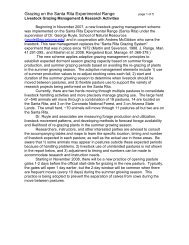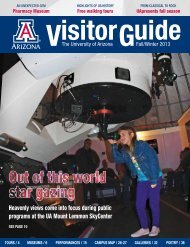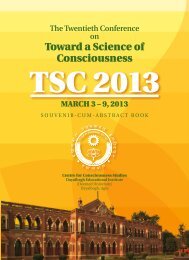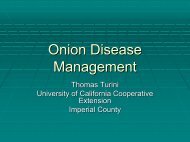CONSCIOUSNESS
Download - Center for Consciousness Studies - University of Arizona
Download - Center for Consciousness Studies - University of Arizona
- No tags were found...
You also want an ePaper? Increase the reach of your titles
YUMPU automatically turns print PDFs into web optimized ePapers that Google loves.
178 4. Physical and Biological Sciences<br />
Temple Grandin and others. I beg to differ with the common belief that animals have greatly<br />
inferior inner experiences. My conference presentation will discuss historical commentary<br />
and recent research related to this issue, as well as facilitating an energetic dialog on constructive<br />
speculation. Might Consciousness be a Behavior? C20<br />
4.10 Medicine and healing<br />
260 Placebo Response and Consciousness Daniel Beal <br />
(Psychiatry, University of Cincinnati, Cincinnati, OHIO)<br />
There is a hard problem of consciousness in the placebo response which is entirely similar<br />
to the general hard problem of consciousness. In this context, the placebo response exhibits<br />
aspects of consciousness representing a complex process of attention which affects underlying<br />
processes of physiology and disease. However, from the most concrete medical point of view,<br />
placebos are not a process or elaborate concept. They are simply a concrete comparison tool,<br />
a necessary evil in randomized clinical trials, an inactive-treatment benchmark for statistical<br />
analysis of “active treatment” effect. From this point of view, a high placebo response rate is<br />
something to be reduced or eliminated by better clinical trial procedures. It is not evidence<br />
that something interesting and fundamental is going on in subjects. Recent studies go much<br />
further in exploring fundamental and phenomenal aspects of placebo response. For roughly 25<br />
years half of all antidepressant studies have included a placebo “wash-in”, in which all subjects<br />
initially get placebo. Placebo responders are eliminated from the trial, non-responders<br />
continue in the trial and get active treatment or placebo. The rate of placebo response in these<br />
studies is the same as those with no placebo wash-in. This clearly shows that placebo response<br />
is an ongoing capacity, not an issue of “responders” and “non-responders”. Functional neuroimaging<br />
of placebo response shows different brain regions responding to active and placebo<br />
treatments. Different treated conditions implicate unique brain areas. There is no evidence of<br />
a universal neuroanatomy or neurophysiology of placebo response. Studies of pain response<br />
post-op have compared morphine and saline solution injected into an IV line with morphine<br />
pushed into the line by computer control and unknown to the subject. The observed injected<br />
morphine is best for pain, followed by the observed saline, with the covert computer-injected<br />
morphine a distant third. Other studies have found that the level of improvement in various<br />
symptoms are correlated to the time and intensity of involvement with study clinicians. The<br />
more focus, time, and quality of interaction, the better the response. The formal quality of<br />
the relationship “meaning response” or “level of ritual” which captures attention, is an important<br />
aspect of response. A German acupuncture study found that both active and placebo<br />
acupuncture were more effective for back pain than traditional analgesia. Both groups of<br />
acupuncture subjects had more interaction with study staff than treatment-as-usual analgesia<br />
subjects. When asked, subjects in placebo controlled studies were thoughtful, hopeful and<br />
worried about whether or not they were getting active treatment. They were engaged personally<br />
in the process at a level few placebo studies document or consider. One concludes from<br />
this evidence that persistent focusing of attention in the context of disease and healing is a<br />
necessary and central element of placebo response. Either Stapp’s Quantum Zeno Effect or<br />
a Lorentz-like chaotic attractor may model the nature of sustained attention in the placebo<br />
response. Considering the placebo response as a function of consciousness can enrich our<br />
understanding of the hard problem and the nature of consciousness. C18<br />
261 The Effect of Psychiatric Medication on Consciousness: A Survey of 100 Patients<br />
Who Have Started, Stopped and Restarted Medication Ross Grumet<br />
(Atlanta Psychiatric Specialists, PC, Atlanta, GA)<br />
100 patients treated with psychotropic medications were selected because they had started,<br />
stopped, and restarted. This naturalistic ABA design study includes antidepressants, mood<br />
stabilizers, stimulants, anxiolytics, antipsychotics. The experience of starting and later restarting<br />
produced a clearer subjective picture. Response categories emphasized alterations in consciousness:<br />
of time (e.g.,speed, past, future); of emotional intensity (e.g.,caring or not caring);<br />
of perceptual vividness; of narrative ability; and miscellaneous categories. Interestingly, the







